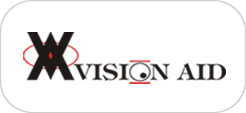About Eye - VITAMINS AND EYE
The following vitamins, minerals and other nutrients have been shown to be essential for good vision and may protect your eyes from sight-robbing conditions and diseases.Beta-carotene
- May protect against night blindness and dry eyes.
- Food sources: Carrots, sweet potatoes, spinach, kale, butternut squash.
Bioflavonoids (Flavonoids)
- May protect against cataracts and macular degeneration.
- Food sources: tea, red wine, citrus fruits, bilberries, blueberries, cherries, legumes, soy products.
Lutein and Zeaxanthin
- May prevent cataracts and macular degeneration.
- Food sources: Spinach, kale, turnip greens, collard greens, squash.
Omega-3 Fatty Acids
- May help prevent macular degeneration (AMD) and dry eyes.
- Food sources: Cold-water fish such as salmon, mackerel and herring; flaxseed oil and fish oil; ground flaxseeds and walnuts.
Selenium
- When combined with carotenoids and vitamins C and E, may reduce risk of advanced AMD.
- Food sources: Seafood (shrimp, crab, salmon, halibut); Brazil nuts; enriched noodles; brown rice.
Vitamin A
- May protect against night blindness and dry eyes.
- Food sources: Beef or chicken liver, cod liver oil, eggs, butter, milk.
Vitamin C
- May reduce the risk of cataracts and macular degeneration.
- Food sources: Sweet peppers (red or green), kale, strawberries, broccoli, oranges, cantaloupe.
Vitamin D
- Eye benefits of vitamin D: May reduce the risk of macular degeneration.
- Food sources: Salmon, sardines, mackerel, milk, orange juice fortified with vitamin D.
Vitamin E
- When combined with carotenoids and vitamin C, may reduce the risk of advanced AMD.
- Food sources: almonds, sunflower seeds, hazelnuts.
Zinc
- Helps vitamin A reduce the risk of night blindness; may play a role in reducing risk of advanced AMD.
- Food sources: Oysters; beef, Dungeness crab, turkey (dark meat).
If you plan to begin a regimen of eye vitamins, be sure to discuss this with your optometrists ophthalmologists. Taking too much of certain vision supplements can cause problems, especially if you are taking prescription medications for health problems.
Other Guidelines
Try following these diet guidelines to improve your chance of healthy vision for a lifetime:- Eat whole grains and cereals.
- Choose good sources of protein.Choose lean meats, fish, nuts, legumes and eggs for your proteins. Most meats and seafood also are excellent sources of zinc. Eggs are a good source of lutein.
- Avoid sodium.
- Stay hydrated. Round out a healthy diet with low-fat dairy products such as skim or 1 percent milk for calcium, and healthy beverages such as 100 percent vegetable juices, fruit juices, non-caffeinated herbal teas and water. Proper hydration also may reduce irritation from dry eyes.
Eye Care
Eye care pertains to the daily care of the valuable pair of eyes. Eye care habits should be inculcated from a tender age. The right age to make a child aware of the importance of the eyes is six or seven. That is the phase of life when a child identifies the different parts of his or her body.The simple eye care methods include flushing the eyes with fresh clean water after waking up. An important aspect of flushing the eye care with water is that the person concerned should have a mouthful of water prior to the action. Otherwise, forceful flushing of water can even lead to adverse circumstances including bleeding from the eyes.
Eye Bank
Gokhale Eye Hospital and Eye Bank Tel : 022-24221820Parel eye bank: 022-24162929
MUMBAI HOTLINE FOR EYE DONATION IS 1919.
News & Events
Tips To Protect Young EyesParents should take extra care in selecting toys for young children and supervising their play during the holidays, according to a leading eye surgeon.
Seasonal Disease
Allergic conjunctivitis or spring catarrh is a very common seasonal disorder in children between 5 - 15 years of age. The disorder can only be suppressed. Cure cannot be offered.Download Brochure








